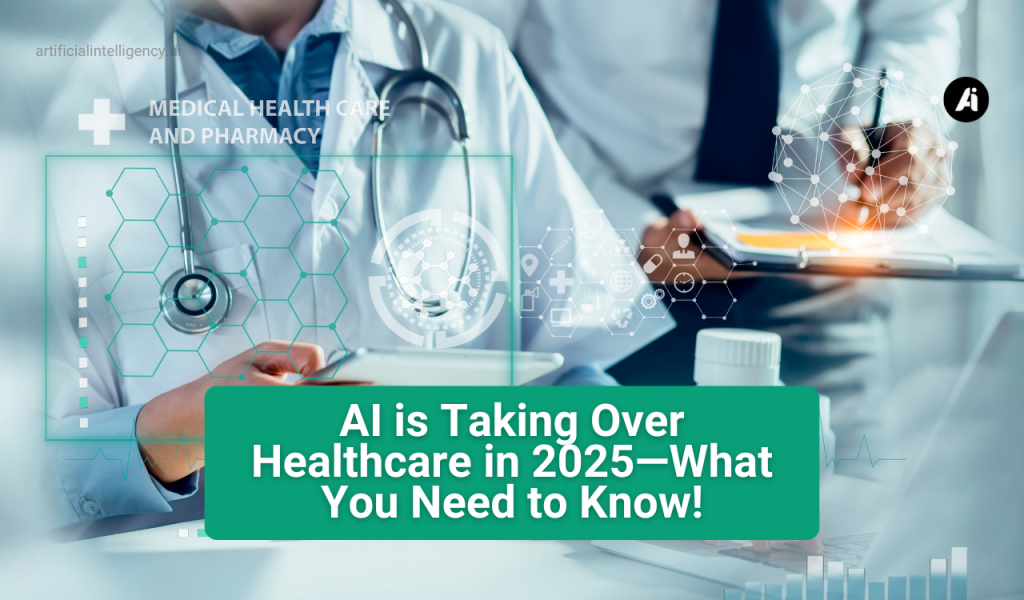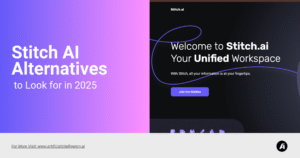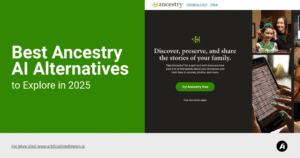AI in healthcare might still feel like uncharted territory, leaving many people unsure about its role. But one thing is clear—AI isn’t slowing down; it’s transforming the medical world at an incredible pace.
Imagine faster diagnoses, customized treatments, and more efficient care—all powered by intelligent technology. The REAL Challenge? Balancing innovation with responsibility. By understanding both the potential and the precautions, we can unlock a future where AI enhances healthcare for everyone.
How AI is Being Used in Healthcare
AI in medicine generally falls into two categories: predictive AI and generative AI.
- Predictive AI analyzes patterns to anticipate medical needs. For example, it can assess pneumonia patients to determine who might need hospitalization based on factors like age, medical history, and lab results.
- Generative AI mimics human-like interactions and can summarize vast amounts of medical data. Some studies suggest generative AI is advanced enough to pass medical exams and create clear, well-written patient instructions. However, it can also produce inaccurate information, raising concerns about reliability.
AI in Diagnosing and Treating Patients
AI in Diagnosis
AI is already assisting doctors with diagnosis in several ways:
- Colonoscopy Assistance: AI can analyze images during a colonoscopy and highlight potentially cancerous polyps, significantly reducing the risk of missing dangerous growths.
- Mammogram Interpretation: AI-supported mammograms have been found to detect breast cancer with accuracy comparable to two trained radiologists, improving both efficiency and early detection rates.
AI in Treatment
Beyond diagnosis, AI is also helping in treatment planning and early detection of critical conditions:
- Sepsis Detection: A predictive AI system developed at Johns Hopkins University helps identify patients at high risk of developing sepsis. This allows for faster treatment and better outcomes.
- Patient Deterioration Alerts: AI tools deployed in hospitals like Kaiser Permanente monitor patient data, such as vital signs and lab results, to detect early warning signs of deterioration. This enables doctors to intervene quickly, reducing mortality rates.
AI’s Impact on Healthcare Operations
Beyond diagnosis and treatment, AI is streamlining administrative tasks in healthcare. AI-powered medical documentation tools, known as “scribes,” listen to conversations between doctors and patients and automatically convert them into structured medical notes.
This significantly reduces the time doctors spend on paperwork, allowing them to focus more on patient care. Additionally, AI is being used to assist with insurance approvals by drafting prior authorization letters for medications and treatments. This helps expedite approval processes and reduces the administrative burden on healthcare providers.
However, concerns remain about the potential for AI to be used by insurance companies to deny claims or create barriers to speaking with human representatives. Privacy and data security also continue to be critical issues that must be addressed as AI becomes more integrated into healthcare systems.
What Patients Should Know
AI has been used in healthcare for years, but its role is growing. Patients should ask their providers about AI’s role in their care and review office policies regarding AI use. Healthcare data is protected under HIPAA, but it’s always good to stay informed about how personal health information is being handled.
As AI continues to shape medicine, experts stress the importance of balancing its benefits with transparency, rigorous testing, and ethical oversight. While AI can enhance care, it must be implemented responsibly to ensure patient safety and trust.
Author
-
I’m an AI SaaS expert passionate about simplifying complex tech. I explore and review AI-powered products to help you make smarter decisions.
View all posts



